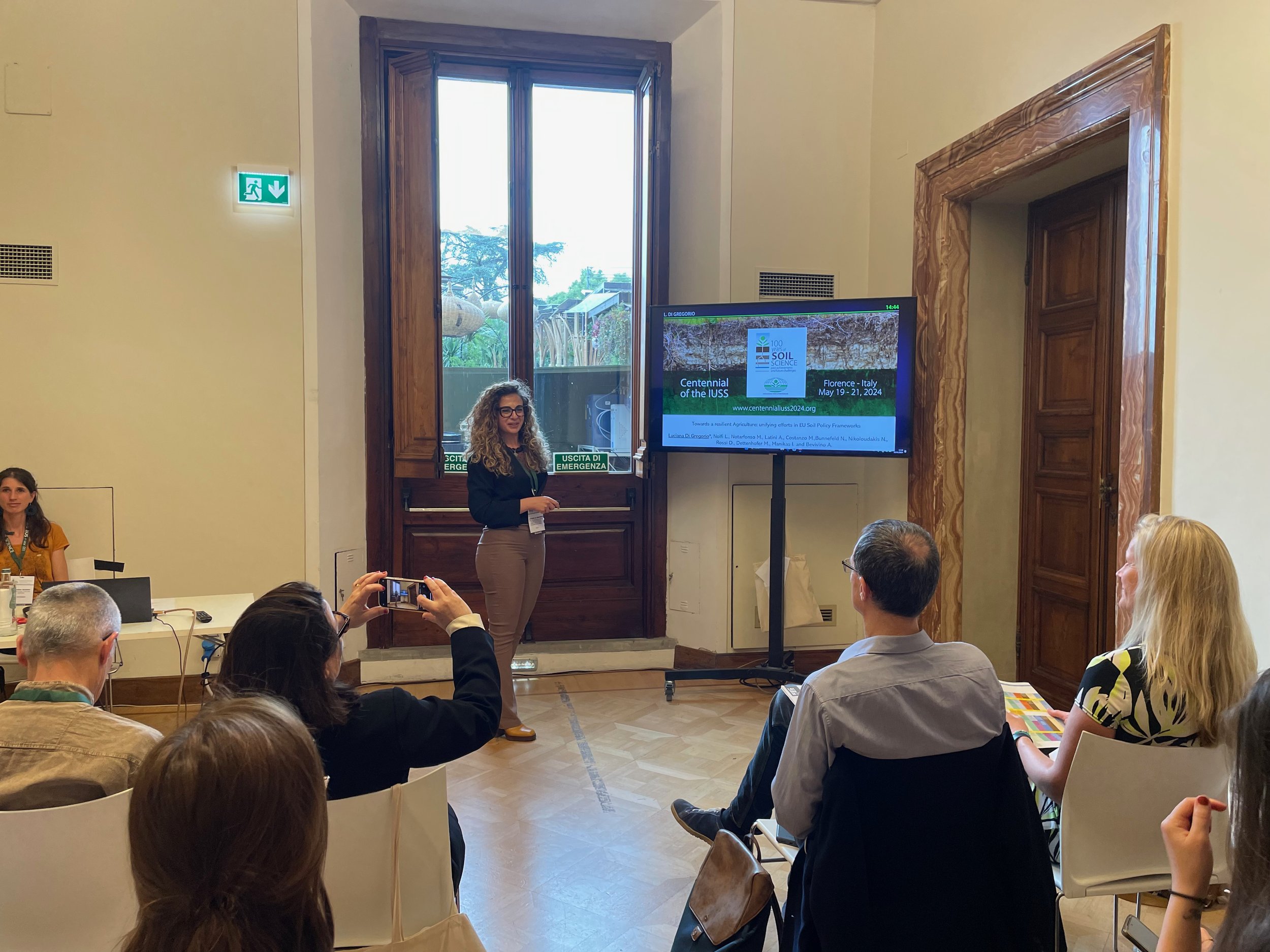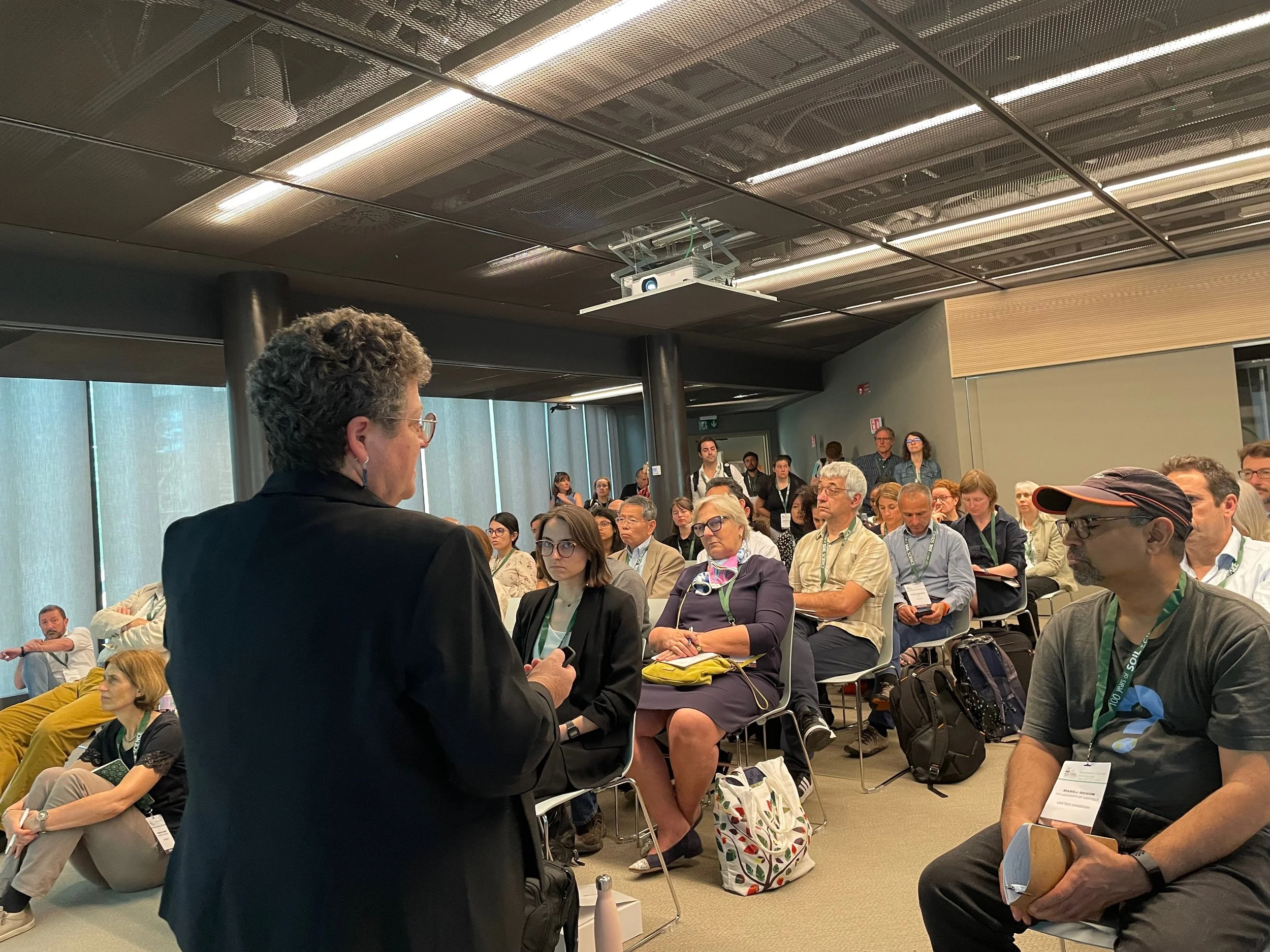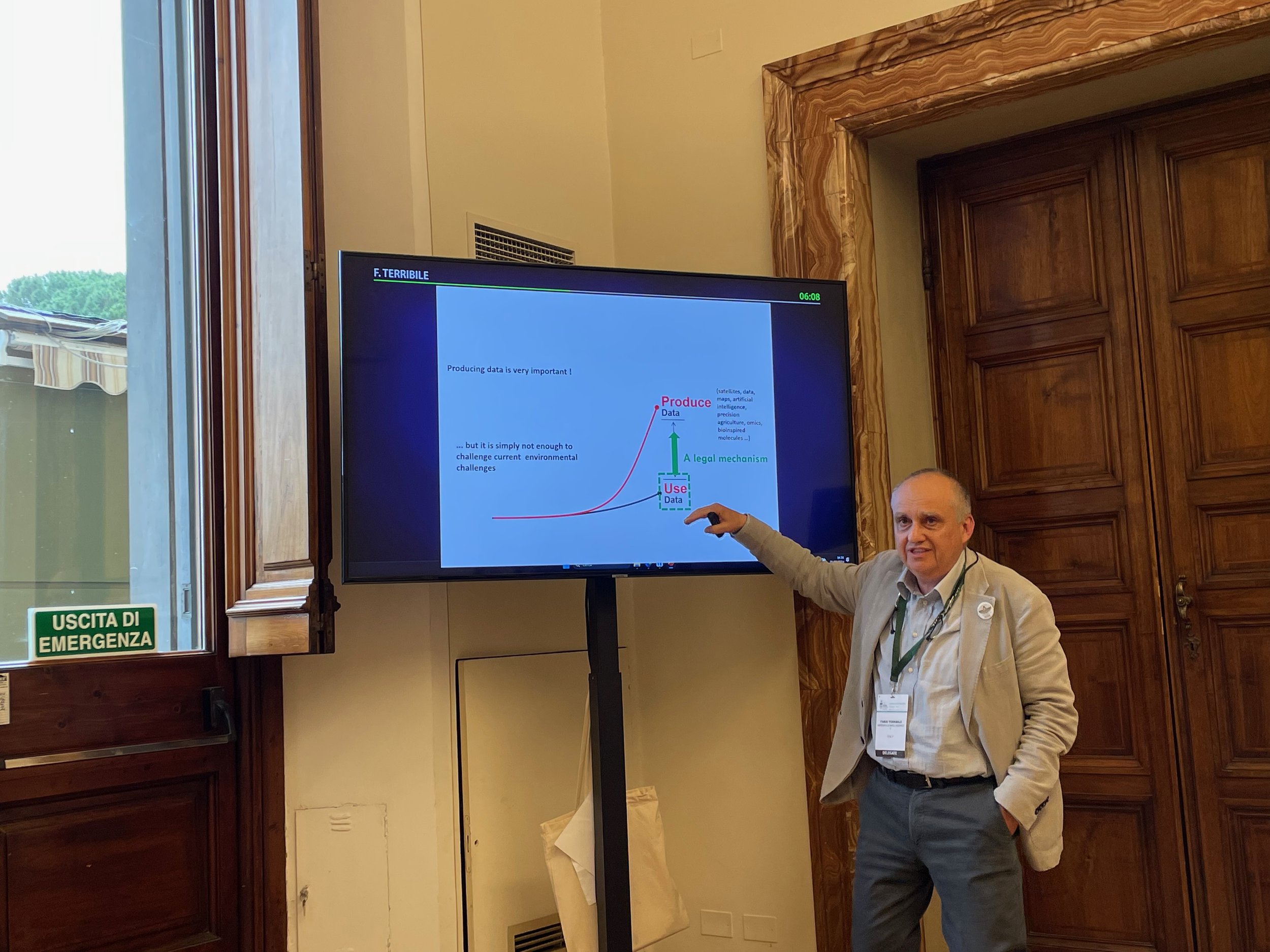CA4SH at the IUSS Centennial Celebration and Congress: Reflecting on successes and looking ahead to the future of soil science
On 19 May 2024, the International Union of Soil Sciences (IUSS) celebrated 100 years since its founding with a celebration congress.
Founded as the International Society of Soil Science (ISSS) on 19th May 1924, the IUSS and the Italian Soil Science Society (SISS) welcomed more than 1500 scientists from all over the world to Rome, Italy, where the IUSS was founded.
IUSS President Dr Edoardo Costantini opened the congress, which included over 100 parallel sessions over the three-day event, exploring linkages between sectors and scales to tackle climate change, environmental degradation, and improve livelihoods all over the globe through scaling soil health. The IUSS received more than 1431 abstracts under 7 themes: Soil health in achieving the Sustainable Development Goals, Soil governance, Soil in the circular economy, Soil sciences impact on basic knowledge, Soil in the digital era, Soil and humanity, and Equity, diversity, and inclusivity in soil sciences.
Numerous CA4SH partners were in attendance at the IUSS Centennial (not to mention that the IUSS is a member organization!), including the Honorable Penny Wensley (previously the National Soils Advocate for the Government of Australia) who was awarded the 2024 IUSS Distinguished Service Award at the Congress, and CA4SH Steer-Co member Dr Sieg Snapp (Program Director for Sustainable Agrifood Systems at CIMMYT).
CA4SH Side Events
Advances in soil health monitoring
Targeted investments in soil health are urgently needed, including investments in robust methods for monitoring soil health to prioritize and track land management efforts over time. This session showcased advancements in soil health monitoring from robust field survey designs, to innovations in laboratory methods including soil spectroscopy, as well as advancements in remote sensing.
The session highlighted the critical importance for monitoring methodologies to be applied to answer key knowledge gaps on the impact of land management and landscape restoration practices on soil health, and explored the inclusion of citizen science, bringing stakeholders and communities into the monitoring process.
Accelerated Learning With Farmers: Soil Health Monitoring That Harnesses Citizen Science, Digital-sensors and Integrated Data Sharing (S. Snapp, R. Chikowo, P. Marenya, D. Choudhary, S. Gameda, T. Sida)
Innovative Methods and Practical Considerations for Scaling Soil Health Measurements (E. Rieke, D. Bagnall, C. Morgan, D. Liptzin, W. Honeycutt)
Proposition for a Methodological Framework and Prototype Mrv Tool for Cropland C Stock Change Assessment at High Resolution Over Large Regions (A. Ihasusta, A. Al Bitar, T. Wijmer, L. Arnaud, V. Antonenko, A. Geraud, R. Fieuzal, E. Ceschia)
Use of Moisture Sensors in Green Covers for Soil Recovery in Fruit Tree Orchards (C. Orts, A. Marques-Mateu, M. Soriano, J. Llinares)
Soil Ambitions: Driving soil health into national and international policy
Few policies incentivize farmers and pastoralists to invest in practices to maintain and improve soil health. This session highlighted opportunities to include soil health in policies and strategies at the national level, including in the National Determined Contributions (NDCs) as well as ongoing efforts to recognize soil health in the Rio Conventions (UNCCD, UNFCCC, UNCBD) and beyond.
For example, soil has recently made its way into high-level policy mechanisms such as the Australian National Soil Strategy and the European Union Soil Strategy for 2030, and is gaining ground through the United Kingdom with the Soil Health Inquiry. Recent policy assessments identified opportunities for integrating soil health and soil organic carbon in the NDCS. In global dialogues, soil health was also included in the decisions following the UNFCCC COP27 in 2022, through the Koronivia joint work on agriculture, but translating these decisions into enabling policy mechanisms is not a linear path.
This session will contribute to increasing awareness of the need for soil health to be integrated into policy. The session will bring together stakeholders from research, policy, development and farmer organizations, and governments to discuss opportunities to engage and integrate soil health into policy at national and international levels.
Assessing the Relevance and the Feasibility of Candidate Policy Recommendations From the Ejp Soil Programme to Strengthening the Eu Soil Strategy (I. Criscuoli, F. Galioto, I. Falconi, A. Martelli, G. Dara Guccione)
Towards a Resilient Agriculture: Unifying Efforts in EU Soil Policy Frameworks (L. Di Gregorio, L. Nolfi, M. Notarfonso, A. Latini, N. Bunnefeld, N. Nikoloudakis, D. Rossi, M. Dettenhofer, I. Manikas, A. Bevivino)
Investigating the Interplay of Different Policy Instruments in Addressing Agricultural Soil Health Challenges in the EU and Türkiye (F. Galioto, F. Varia, G. Dara Guccione)
A Smart Soil Policy Law: a Proposal From Soil Scientists in Italy (F. Terribile, A. Basile, E. Bonifacio, G. Corti, A. Mileti)
Soil health for people and planet: Leveraging policy, integrating governance, exploring collaboration and increasing engagement to build a resilient, sustainable future
CA4SH co-Lead Dr Leigh Winowiecki participated in a fireside chat hosted by the British Society of Soil Science, where speakers discussed the need for integrated approaches that meet the needs of a diverse range of stakeholders, as well as multiple environmental and social objectives. This should be upheld with robust monitoring frameworks and efficient communication.
"Be ambitious, determined, and aware that it is a long call" - Hon. Penny Wensley, former National Soils Advocate of Australia



















































































